Match cards with three different representations of time to practise reading clocks and time in their written form.
🤖 Tell Time to the Hour and Half Hour
Telling time isn’t just a life skill for students to learn. They also put their critical thinking and maths skills to good use.
For example:
- They have to know how much time is in a minute and an hour…
- They have to remember what each hand on an analog clock means and how to tell them apart, and…
- They have to match numbers to specific increments of time (for example, 3 represents 15 minutes past the hour).
That’s a lot of skills to use at once!

Continue your lessons on telling time by breaking it into 30-minute increments while your students build a helpful, time-telling friend.
To play, students will match up three cards represented as analog clock faces, digital clocks and written time. If they match them all correctly, students will put together 24 robots.
⏰ Scaffolding + Extension Tips
Support struggling students by removing the word cards from the set. Students will make a shorter robot by matching the analog and digital cards. Then add the written cards for students to match to their robot pairs.
Challenge fast finishers who already understand the concept to practise writing elapsed time based on the card. For example, what time will it be in 2 hours? What time will it be in 30 minutes?
🕐 More Ways to Use Our Telling Time Game for First Grade
A team of dedicated, experienced educators created this resource for students to work on independently or with a partner.
However, check out our suggestions for using this activity to reinforce your guided maths group and full-class lessons too:
🛴 Scoot Activity
Number and place only the analog clock cards around the room in numerical order. Instruct students to number a sheet of paper 1–24 as their recording sheet. Assign students or pairs to a starting point card. Give students time to review the card and record the time in the corresponding space on their paper. Students will rotate to the next card when you say, “SCOOT!” Continue in this manner until students return to their starting point.
💃 Mirror Game🕺
This activity works best with small groups because each student will need a mini whiteboard and marker. Divide the students into two groups seated in 2 lines facing each other. Show an analog clock card to students and instruct them to write the time on their boards. The students turn their boards around on your cue so their partner can see their answers. If both pairs have the correct answer, they get 2 points. If one has the right answer, the team gets 1 point.
🧑🏫 Match Me If You Can
Hold back the analog clock cards for yourself with a small group of students and divide the digital and written time cards equally amongst students. Then, show students an analog clock card and determine the time as a group. The students with matching digital and written cards lay them face up in front of their playing area. The first player to run out of cards wins.
Easily Prepare This Resource for Your Students
Use the dropdown icon on the Download button to choose between black and white or colour PDF versions of this resource.
Print on thick card for added durability and longevity. Place all pieces in a folder or large envelope.
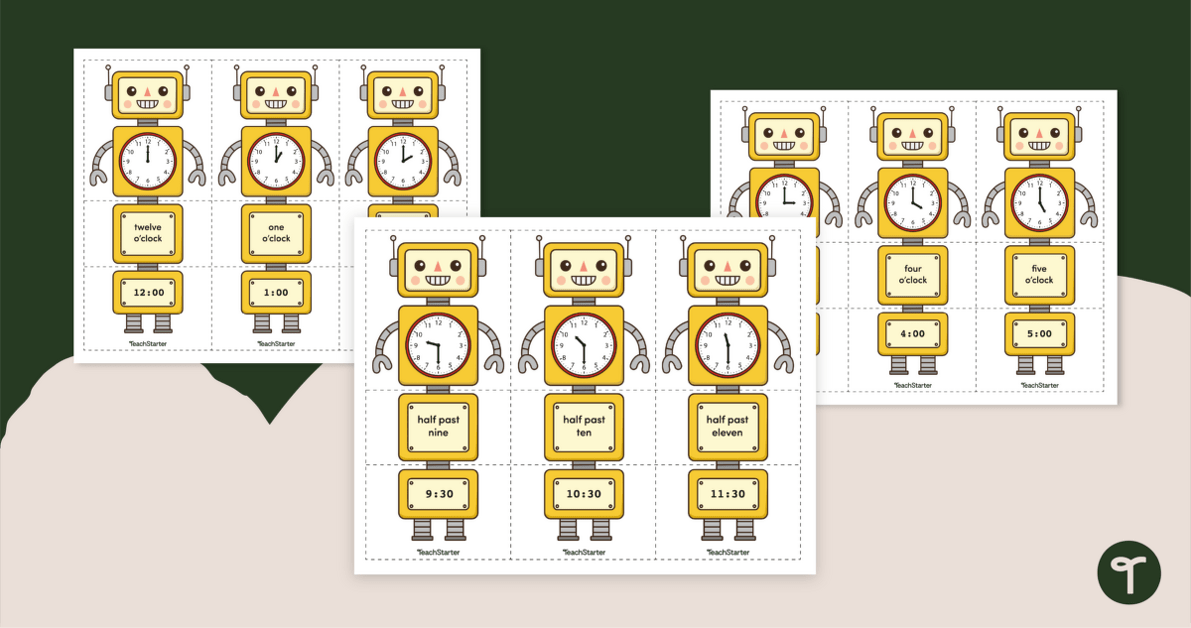

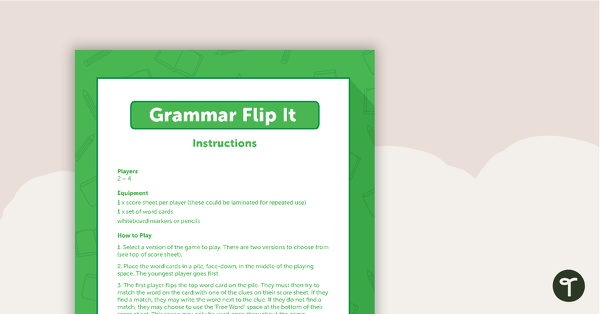
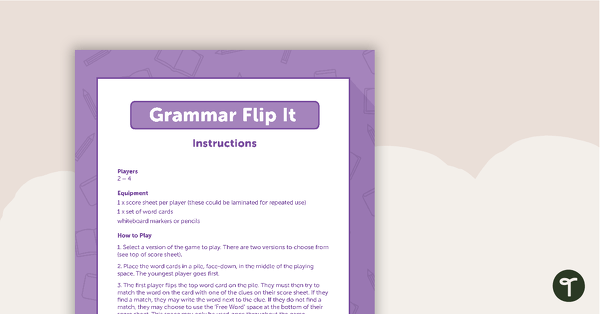
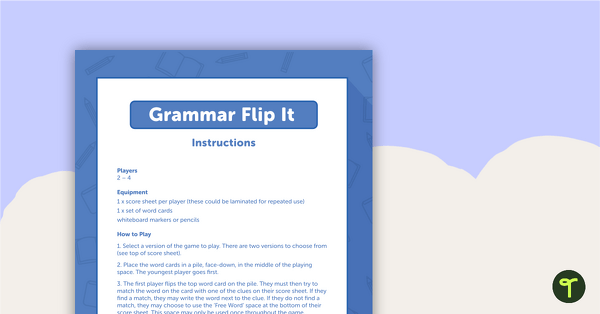

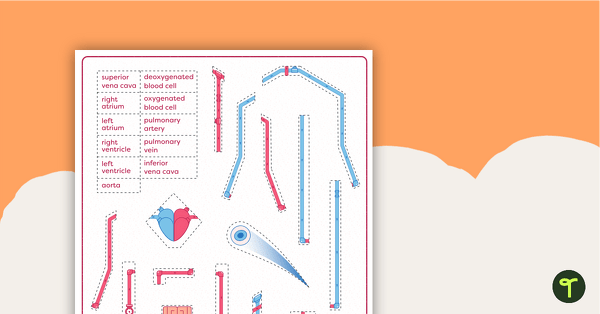
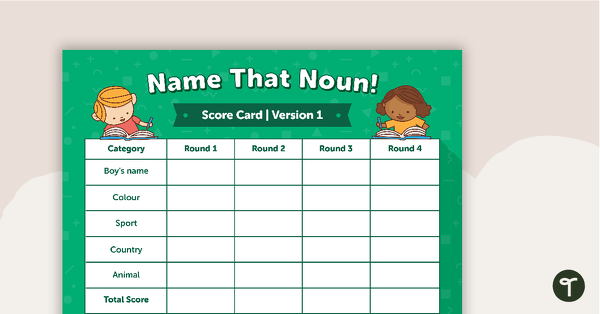
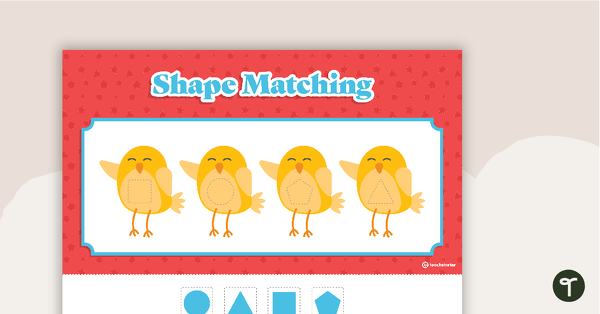
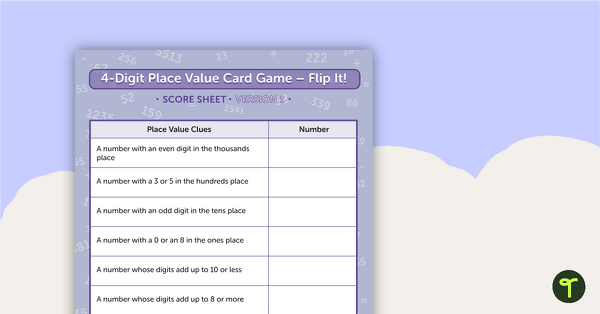
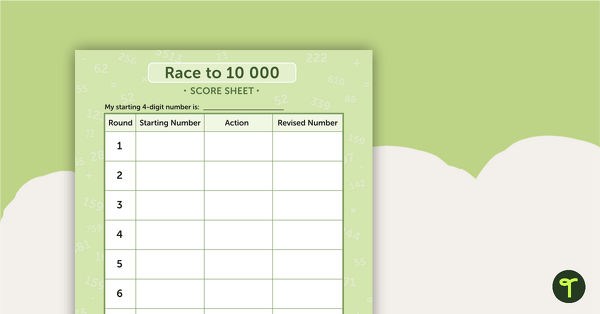
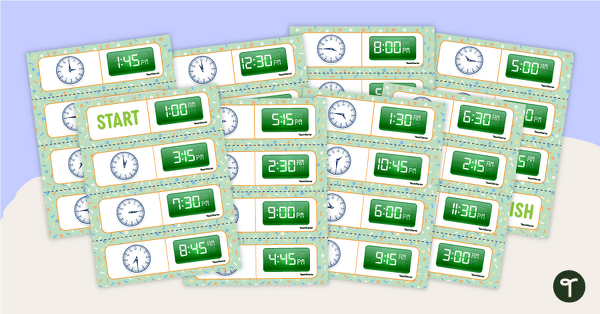
0 Comments
Write a review to help other teachers and parents like yourself. If you'd like to request a change to this resource, or report an error, select the corresponding tab above.